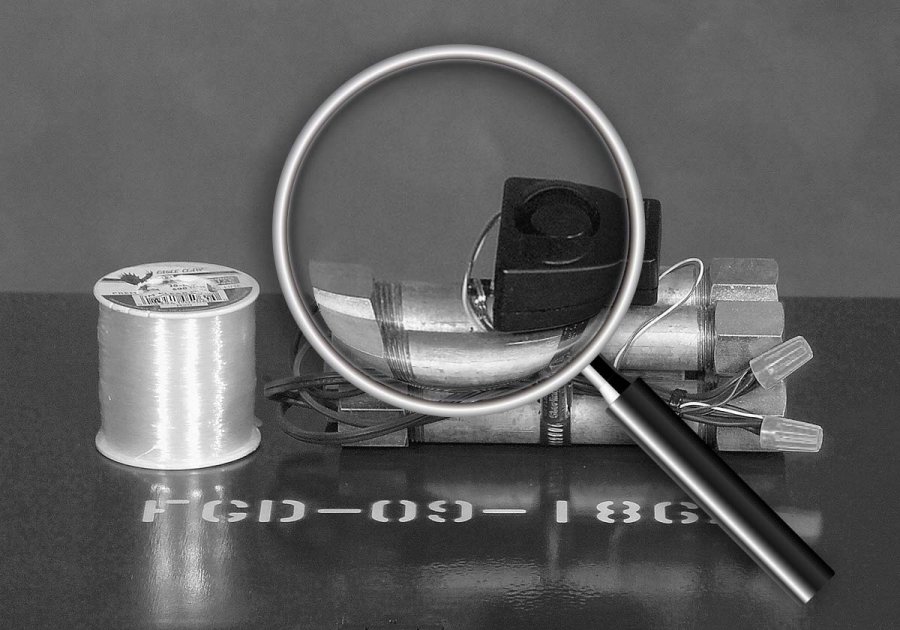Christmas is just days away but consumers heading online for their last minute shopping should be aware of the increase in e-retail scams during the holiday season.
sent out it’s annual reminder saying:
“Scammers set up fake websites with offers on popular items at prices well below the normal going price. These websites can easily be mistaken for legitimate online retailers with sophisticated designs that look just like the real thing. The may even use a ‘.com.au’ domain or a fake Australian Business Number (ABN). However, the deal will ends up being too good to be true, with the scammer taking your money and leaving you empty handed with a gift that never arrives.”
They also warn about the increasing commonality of parcel delivery scams. These involve scammers sending emailing you pretending to be from mail and courier services such as Australia Post or FedEx. Often personalised with your name and address details, the email informs the recipient of a missed a parcel delivery at home and details instructions on how to retrieve it.
These scams work well around the holiday period where people are often expecting gifts and packages – both from others and from their own online retail purchases. However, the attachment to these emails is an executable file (.exe) and once opened, will install ransom-ware on your computer. This will restrict access to your computer system and demands ransoms to be paid in either lump sums all installments to the creator(s) of the malware in order for the restriction to be removed. Paying off the ransom doesn’t guarantee your computer will be restored to its prior state of functionality and most victims end up having to paying costly repairs and suffering the loss of valuable data like files and images.
A simple variation of this scam – and a great way for scammers to earn some fats cash – is an email offering the re-scheduling of package delivery for a fee. Again this can work a treat at Christmas time; most of time we’re aware of when we should we should be expecting a delivery, but at Christmas we can get excited about the idea of a family or friend sending us a gift and jump at the chance to have the delivery rescheduled. However, the fees paid (between $10-$30) just end up being wired into a scammer’s account and the supposed package never even existed. Add to this, you may have provided them with personal financial details, putting your accounts at risk.
It’s hard to believe that people can be so cruel at this time of year but the rule of the land is that wherever there’s money to be made, there are scammers trying to make it.
In 2013, reports of online shopping fraud in the UK during the Christmas period jumped 31% on the previous year, leaving shoppers out of pocket by £9.5m, with individuals suffering an average loss of £113 each. These figures were reported in The Guardian
late last month, but the writer also mentions recent research indicating less than a third of people will actually report an online crime to police, so the true figure could be closer to £28m.
According to Get Safe Online
the top five riskiest items for Christmas shoppers are:
- Smartphones – specifically iPhones and Samsung Galaxy
- Game Consoles – particularly PlayStation 4 and Xbox One
- Ugg Boots
- Barbour Jackets
- iPads and iPad minis
The list hasn’t been created to deter shoppers from heading online, but instead to help them become more aware of what to look out for. Users of the online marketplace, Gumtree, should be particularly scrupulous and when it comes to buying expensive tech equipment it’s probably not at all advisable.
How to protect yourself from scammers while shopping online
- Use your common sense, if a deal looks too goof to be true it probably is.
- If the shopping site only provides payment through money order or wire transfer it’s probably a scam.
- Look for the golden padlock symbol. These can be found at the beginning of the url (before ‘https’) and indicate that secure payment methods are available.
- If you’re suspicious about a ‘missed’ parcel email or any other form of contact, contact the company directly.
- Do not click on links or download attachments in emails from unrecognised addresses.
- Only access your online banking or shopping sites by typing the link into your browser. Never go to site via a link that was in an email and then enter in personal details or pursue purchases.
- Check the url in your browser. Spelling mistakes are a surefire indicator of scam site made to replicate popular brands and retailers.
- Log out after shopping and save the confirmation letter of your purchase.
- If you think you have been scammed, contact your financial institution immediately. If the scammer is posing as a legitimate company, you should also report the incident to them to save other consumers from becoming victims.


